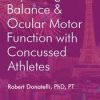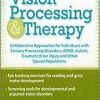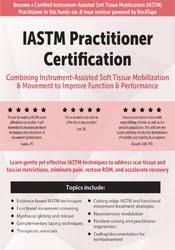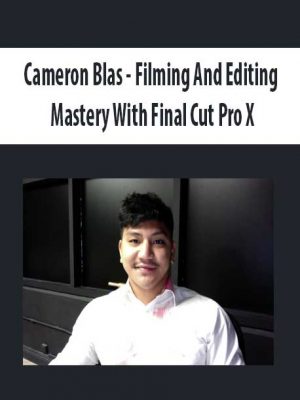IASTM Practitioner Certification: Combining Instrument-Assisted Soft Tissue Mobilization & Movement to Improve Function & Performance – Dr. Shante Cofield
$199.00 Original price was: $199.00.$56.00Current price is: $56.00.
Proof of item:
Have you been wondering how instrument-assisted soft tissue mobilization (IASTM) techniques could be used in your practice?
You might’ve heard the term “IASTM” and associated it with rough techniques, overwhelming training or expensive tools. In the past, that may have been true. But we’ve partnered with the experts at RockTape to create a brand-new training program to change all that — the IASTM Practitioner Certification.
With over 7 years of experience, Dr. Shante Cofield (aka The Movement Maestro) will walk you step-by-step through how to use the IASTM tool, so you’ll feel confident using it on clients who suffer from any number of conditions in the upper and lower body, including clients with conditions like:
• Tennis Elbow
• Shin Splints
• Patellofemoral Disorders
• Lingering Scar Tissue
• Fibromyalgia
• Carpal Tunnel Syndrome
• Lumbar Sprain/Strain
• Rotator cuff dysfunction
• and so many others!
Then this training is for you. Help your client heal by using tools that connect both neurologically and mechanically, treating the whole body.
RockTape has brought movement and pain solutions to over 50,000 professionals worldwide — and when all your clients are looking for is relief, it’s nice to know you’re trained by the best!
Plus, when you enroll in this offer today, you’ll also get an exclusive discount on your own set of IASTM tools — a set of specially designed RockBlades!
IASTM isn’t just training… It’s a revolution in the rehab world! When you use an IASTM tool it becomes an extension of you — the techniques decrease overall time of treatment, facilitate faster recovery and so much more.
Get started today…
Key Principles of Instrument-Assisted Soft Tissue Mobilization
Dr. Shante Cofield will walk through the Movement Pyramid framework and show you:
- How movement, mobility and motor control are pivotal to your rehab routine
- how these patterns and problems can have a ripple effect on your client
- The physiological and neurological effects of instrument-assisted techniques
- An in-depth look into the IASTM blueprint, including how to feed the brain, tissue tolerance concepts, a graded exposure system
- And so much more!
Functional Movement Screening
Dive into sagittal, frontal and transverse plane patterns, along with:
- Common problems associated with a faulty planar movement pattern
- How these patterns and problems can have a ripple effect on your client
- The necessary steps to take in your rehab routine
Fundamental IASTM Techniques and Treatment Strategies
This in-depth portion of the training will show you how to:
- Use different treatment strokes with IASTM tools (like RockBlades)
- Integrate manual therapy, taping and movement into your treatment plans
- Use corrective exercise strategies utilizing kinesiology taping to improve stability following mobility enhancement
- Apply IASTM effectively with your client’s upper body, lower body, scar tissue and fibromyalgia
- Perform myofascial gliding and release along with other comprehensive strategies for improving function and performance.
Advanced Tips for Avoiding Common IASTM Mistakes
IASTM can be harsh on your client’s body if not used correctly, which is why you’ll discover:
- Techniques and strategies for preventing bruising, redness and hand fatigue
- How to maintain control of your IASTM tool when using emollient creams
Coding & Documentation Tips
Tag: IASTM Practitioner Certification: Combining Instrument-Assisted Soft Tissue Mobilization & Movement to Improve Function & Performance – Dr. Shante Cofield Review. IASTM Practitioner Certification: Combining Instrument-Assisted Soft Tissue Mobilization & Movement to Improve Function & Performance – Dr. Shante Cofield download. IASTM Practitioner Certification: Combining Instrument-Assisted Soft Tissue Mobilization & Movement to Improve Function & Performance – Dr. Shante Cofield discount
1 review for IASTM Practitioner Certification: Combining Instrument-Assisted Soft Tissue Mobilization & Movement to Improve Function & Performance – Dr. Shante Cofield
| 5 star | 100 | 100% |
| 4 star | 0% | |
| 3 star | 0% | |
| 2 star | 0% | |
| 1 star | 0% |
Sorry, no reviews match your current selections
Q & A
Related products
Personal Development
Personal Development
Cameron Blas – Filming And Editing Mastery With Final Cut Pro X
Personal Development
Personal Development
Personal Development
Personal Development
Personal Development
Personal Development



















Great product as described from a reliable vendor; would buy again! | IASTM Practitioner Certification: Combining Instrument-Assisted Soft Tissue Mobilization & Movement to Improve Function & Performance – Dr. Shante Cofield